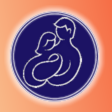Every night millions of mothers and babies the world over sleep close to each other, and the babies wake up just fine. Instead of alarming conscientious parents, sleep advisors are teaching parents how to co-sleep safely.
From a show-me-the-science doctor, a cosleeper in his family with kids on his own Dr. Bill and Martha Sears advise new parents to consider the following:
- Cultures who traditionally practice safe co-sleeping, such as Asians, enjoy the lowest incidence of Sudden Infant Death Syndrome (SIDS).
- Trusted research by Dr. James McKenna, Director of the Mother-Baby Sleep Laboratory of the University of Notre Dame, showed that mothers and babies who sleep close to each other enjoy similar protective sleep patterns. Mothers enjoy a heightened awareness of their baby’s presence, what I call a “nighttime sleep harmony,” that protects baby. The co-sleeping mother is more aware if her baby’s well-being is in danger.
- Babies who sleep close to their mothers enjoy “protective arousal,” a state of sleep that enables them to more easily awaken if their health is in danger, such as breathing difficulties.
- Co-sleeping makes breastfeeding easier, which provides many health benefits for mother and baby.
- More infant deaths occur in unsafe cribs than in parents' bed.
- Co-sleeping tragedies that have occurred have nearly always been associated with dangerous practices, such as unsafe beds, or parents under the influence of substances that dampen their awareness of baby.
- Research shows that co-sleeping infants cry less during the night, compared to solo sleepers who startle repeatedly throughout the night and spend 4 times the number of minutes crying. Startling and crying releases adrenaline, which can interfere with restful sleep and leads to long term sleep anxiety.
- Infants who sleep near to parents have more stable temperatures, regular heart rhythms, and fewer long pauses in breathing compared to babies who sleep alone. This means baby sleeps physiologically safer.
- A recent large study concluded that bed sharing did NOT increase the risk of SIDS, unless the mom was a smoker or abused alcohol.
To read the full article refer to this link.






No comments:
Post a Comment
Note: Only a member of this blog may post a comment.